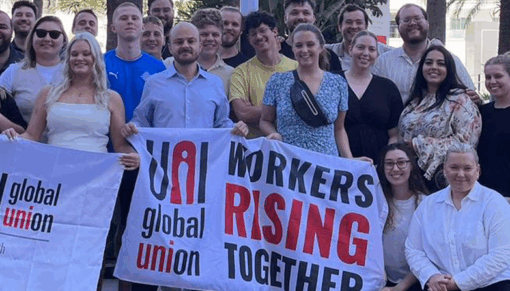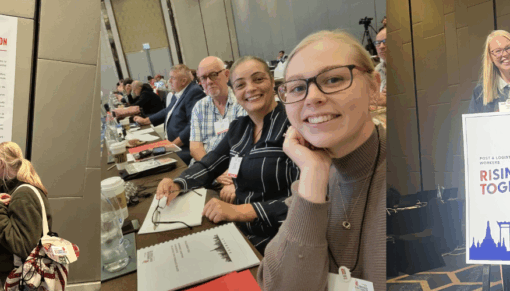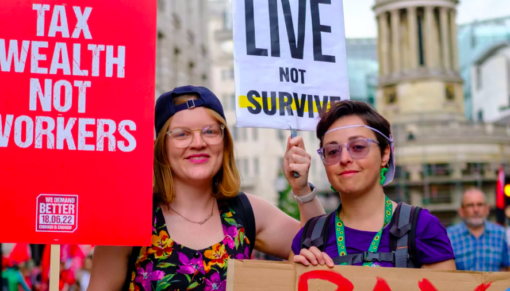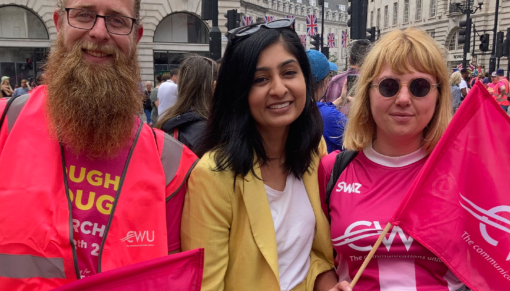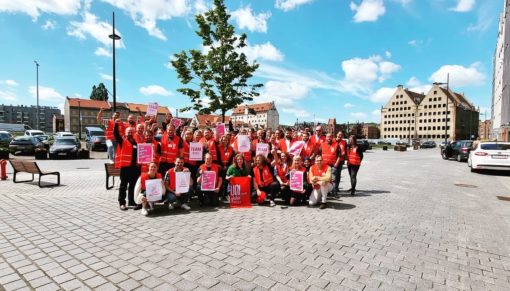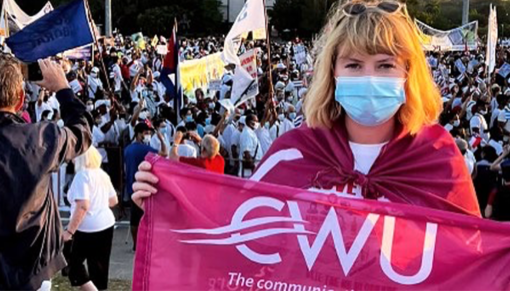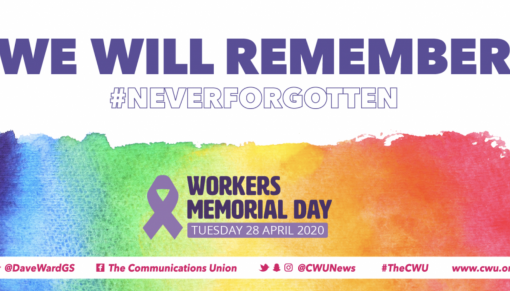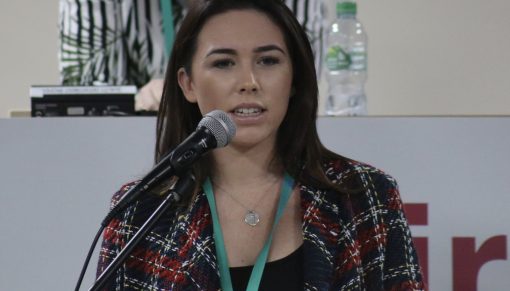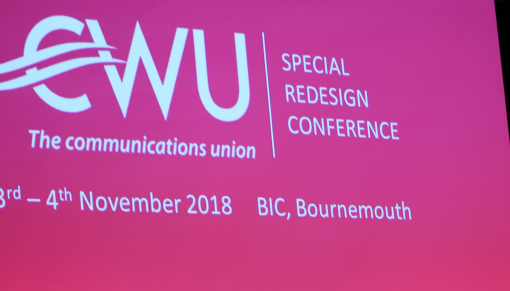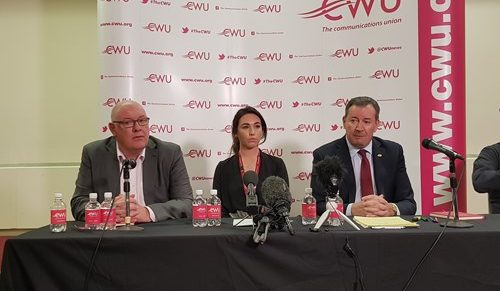Understanding International Trade Unionism and Solidarity: A week in Bangkok
November 12 2025Understanding International Trade Unionism and Solidarity a Week in Bangkok
Charlottee Hoole, Merseyside Amal, North West, National Young Worker Rep (Postal)
UNI Global Union Postal & Logistics World Conference – Bangkok Report
From the 23rd to the 25th of September, I had the amazing opportunity to attend the UNI Postal & Logistics World Conference in Bangkok. It was the first one held since COVID—eight years ago! There were 158 delegates from 42 countries and 55 unions, all coming together to talk about the future of postal work, union rights, and global challenges.
Day 1 – Opening Ceremony & Big Issues
We kicked off with a Muay Thai performance, which was such a cool way to start the week. Then Dave Ward, the President of UNI at the time, welcomed everyone and spoke about some major topics: the Universal Service Obligation (USO), AI in the workplace, member engagement, postal infrastructure, and corporate greed.
We had a series of speakers:
- Thapanee Amarinrat (Deputy CEO of Thai Post) and Suptcha Khusanity (Secretary of Thai Posts Union) welcomed us and encouraged us to learn from each other to modernise the mail industry.
- Christy Hoffman (General Secretary of UNI Global Union) talked about the challenges unions face—AI, outsourcing, anti-union politics—and called for a ceasefire in Gaza and for unions to divest from Israeli-linked banks.
- Susan Alexander (Universal Postal Union) spoke about sustainability, using worker feedback to improve conditions, and how partnerships (like India Post delivering glasses) can help keep postal services profitable.
- Cornelia Berger gave a rundown of what UNI has achieved over the last four years—stopping privatisation in Brazil and Argentina, launching the Save Our Post campaign, and building a relationship with DHL to support workers.
Dave Ward chaired the next session, where we heard from speakers from Palestine and Ukraine. The Palestinian speaker shared how war has stopped postal workers from doing their jobs and blocked medical aid. The Ukrainian speaker talked about the destruction caused by war—hospitals, schools, and post offices destroyed—and how martial law has stripped unions of their rights.
This led to the Postal Peace Resolution, which called for:
- Safety for postal workers
- Sovereignty in postal services
- The right to postal services during crises
- Postal networks as tools for national resilience
- Protection of union rights—even during emergencies
Day 2 – Country Updates & Panels
We heard from Spain, Germany, and Denmark:
- Spain made a deal with their government to recognise postal services as essential and committed to improving them.
- Germany said the postal industry isn’t profitable, but 65% of the public would pay more to keep it public.
- Denmark will be the first country to remove its USO completely—no more letters by December 2025, just email. Outsourcing and digitalisation have played a big role in this shift.
Then we had a panel on the future of the USO:
- Mehdi Hocine said letters have dropped by 90%, but parcels have doubled in the last 10 years.
- Botond Szebeny (Post Europe) said the USO should stay as a pillar of postal services.
- Walter Trezerk talked about how international USO is becoming expensive and operators are struggling financially.
- Michelle Wilkell and Uwe Kopke (Germany) shared stats: post down 8.5%, parcels up 2.54%, and private companies now hold 72% of the market.
- Ibrahima Sarr (Senegal) spoke about partnerships with the private sector and strategies to modernise and finance postal services sustainably.
We didn’t have time for questions, so we moved on to more speakers:
- Sweden talked about democratic rights and how outsourcing harms workers.
- Andy Furey (CWU, UK) spoke about letter decline, parcel growth, and how privatisation has led to poor delivery standards and USO failures.
Panel – Global Fight Against Privatisation
This was a powerful session:
- Stephen DeMatteo (APWU, USA) warned that Trump is trying to privatise USPS. Biden passed some legislation, but it’s not enough. The union is planning a campaign.
- Jack Rocha (Brazil) said privatisation would harm remote communities and reduce service quality. Postal services are essential for delivering medical tests, vaccines, and documents.
- Andy Furey (UK) talked about Royal Mail being sold to a Czech billionaire for £3.5 billion. He explained the CWU/EP Group agreement, which includes:
- No gig economy model
- No compulsory redundancies during USO trials
- Equal pay and conditions for new entrants
- 10% of operating profit dividends going to employees
- Ibrahima Sarr (Senegal) said postal services must stay open for everyone, especially in remote areas.
- Sivaji Vasireddy (India) spoke about India Post’s heritage and how the government is trying to privatise parts of it. He said postal services are more than just mail—they’re about identity, banking, and outreach. Privatisation would widen the rural-urban divide and weaken union representation.
We ended the session with a video showing how job losses in the private sector are affecting postal workers globally.
Day 3 – Strategy, Union Growth & Technology
Union Growth in Logistics
We had a panel on growing unions in logistics:
- Ronaldo Leite (FINDECT, Brazil) talked about JADLOG workers not being unionised and how UNI is helping.
- Rogerio Ubine (FINDECT, Brazil) spoke about gig workers.
- Mathias Bolton (UNI Commerce) is working to bring Amazon workers into UNI.
- Adrian Durtschi (UNI SCORE) shared success stories and how SCORE trainers help unions grow globally.
Technology in the Postal Sector
This was a really eye-opening session:
- Rona Eckert explained how AI, automation, and digital platforms are changing the workplace. She warned about job losses, surveillance, and how tech can shift power away from workers.
- Kazuhiro Fujikawa (Japan) showed how delivery robots, drones, and digital customer service are helping with staffing and reducing emissions.
- Jayne Nutting (DHL Supply Chain) said tech can support workers—like reducing physical strain—and that younger generations are less interested in traditional postal jobs.
Cornelia Berger shared UNI Global Union’s plan for 2025–2029:
- A strong and modern USO with secure financing
- Postal services under public control
- A modern, green, and diverse postal sector
- Technology that supports workers
- Supply chain responsibility in multinational companies
- Fair competition in the parcels market
- Strengthening postal unions in DHL and Geopost globally
This plan was carried, along with motions for:
- Fair treatment for parcel delivery workers
- Women’s Forum motion
- A rule change to add a Vice President role
New leadership was elected, including the World President, Vice President, and regional committee members. The next UNI Global Postal & Logistics Conference will be held in Brazil in 2029.
Conclusion
The UNI Postal & Logistics World Conference in Bangkok was a transformative experience. It brought together passionate unionists from across the globe to share ideas, confront challenges, and build a collective vision for the future of postal services.
From resisting privatisation to embracing sustainable innovation, the conference reinforced the power of global solidarity. The adoption of strategic plans and motions—alongside the election of new leadership—marks a renewed commitment to defending public services, protecting workers’ rights, and shaping a fairer, greener future.
I return home inspired, informed, and ready to apply these lessons in my workplace and union. I’m proud to be part of a movement that stands up for workers, communities, and the public good.





